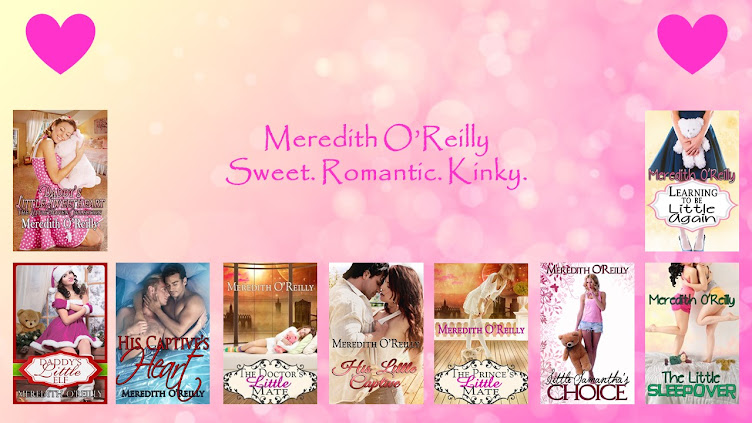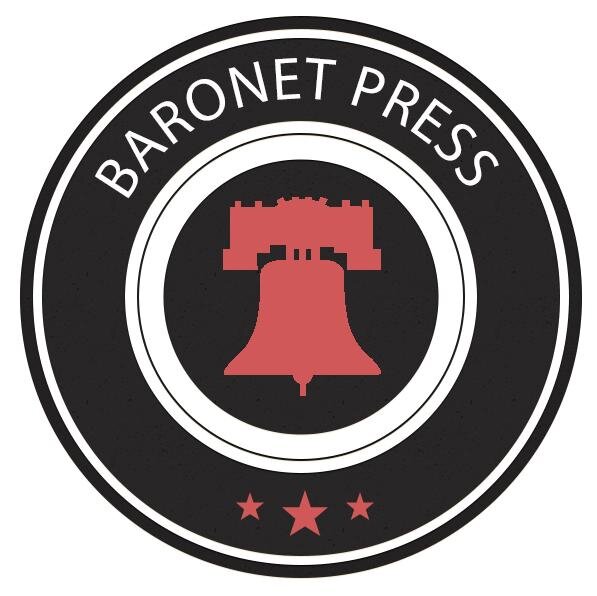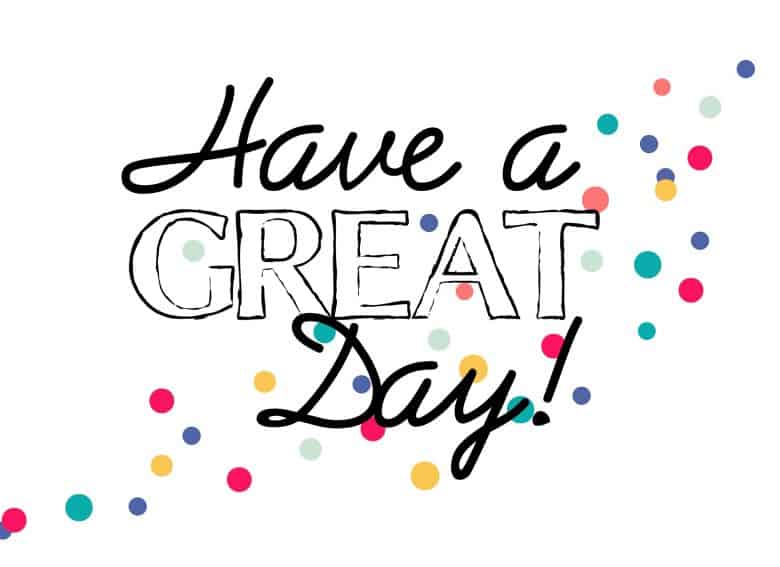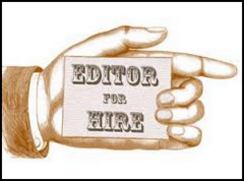A few weeks ago, I was talking with my best friend about self-publishing a book vs publishing a book with a publisher. My best friend has never worked with a publisher or tried to publish a book on her own, but she still had a lot of questions about both topics. It dawned on me that I didn't know a fair amount of the answers. I've only ever published with a publisher, so it got me thinking that it would be interesting to find out the answers and to compare self-publishing a book to publishing a book with a publisher.
I compiled a list of questions and asked three publishers, three authors who have published with publishers, and five self-published authors to answer my questions. Everyone was so sweet and responded. It was very interesting to see the different responses that I got.
I put everyone's answers together and ended up creating three blog posts. On Wednesday, I published one blog post with the answers from the authors who have published with a publisher. Yesterday I published a blog with the answers from the self-published authors. Today's post is all of the answers from the publishers.
Please note that the opinions and statements listed in these posts are solely by the person and not a reflection of me or my blog.
I want to take a moment to say thank you to the honest Bethany, the patient James, and the sweet Casey. Without you guys, this post never would have gotten done, so thank you. Let's get started!
What do you think the biggest difference is between working with a publisher vs. self-publishing a book?
Bethany: The biggest difference is the obvious one: publishers provide publishing services so writers can write. Some authors enjoy finding their own editor, working with the cover artist, learning how to create ebooks, etc. Most don’t – and aren’t very good at it. Even a smaller publisher like Blushing Books has three or four people working full time, and more working part time. These people all have jobs that involve doing things to get these books published, things that the self-published author has to do on his or her own. Some of the things the author can do if they work hard enough, but other things the author can’t do. For example, Blushing Books’ has an Advance Reader program that is run by someone who works 20 hours a week just on that program. This ARC program typically generates 10 plus reviews for our titles with 1-2 weeks of release. A new self-published author simply can’t put something like this in place.
James: In my mind, the biggest difference is that self-publishing puts all of the responsibility for the performance of a book on the shoulders of the author. An author might hire an editor and a cover artist and might pay for various forms of promotion, but those people typically get paid the same amount whether the book sells well or not.
Working with a good publisher, on the other hand, means that you will have a team of people at your side throughout the process. Since the publisher only makes money based on sales of your book, they should be highly motivated to help you write a book which will sell well.
Casey: The biggest difference is definitely support. With self publishing you are on your own and have to figure out everything yourself. When you work with a publisher you can be more focused on your book and have the luxury of not getting caught up in all of the minute details.
Self-publishing has a bad reputation for poor quality stories, particularly poor editing. Do you think that there is any truth to that? Do you think that there is any way to fix it?
Bethany: The way to fix the problems with the poor editing is to hire a good editor, and a good cover designer.
James: No matter how good someone is as an author, in my opinion they should still always work with an editor. There are some self-published authors who do take editing seriously, and those authors tend to pay professional editors to work with them on their books. When self-published authors don’t take editing seriously, I do think it often tends to result in lower quality books.
Casey: I don't really think that self-publishing has such a stigma anymore. I think a lot of writers who really want self-publishing to work for them take the steps to put out quality work. Anyone can hire an editor, not just a publisher.
Everyone, no matter if they're a self-published author, an author who uses a publisher, or a publisher has come to the consensus that hiring an editor is vital to self-publishing a story.
What made you start a publishing company and what makes your publishing company different from all of the other ones in this genre (spanking, age play, medical play, etc)?
Bethany: Blushing Books was the first ebook publisher anywhere. We’ve been publishing on the Internet since 1999 and e-books since 2001. I guess what makes Blushing different is that we’re the largest, the oldest, and we do look at more varied books.
James: Stormy Night has always been an author-centric publisher. We don’t take a book unless we feel that we can help the author make it more successful than it would have been without us. We also consider honesty with our authors very important. For example, if we aren’t confident that a given plot idea will sell, we will tell an author that upfront. If we believe that a book will sell better with a different title, we’ll work with the author to come up with a new one, and so forth.
Casey: Technically I started out as “self-publishing” but I feel like a fraud even saying that because I really wasn't doing it all myself. My husband was publishing my books for me, I never did it 100% on my own and I think if I had tried to I would have stopped long ago. We just decided to take the next step and do for other authors what we were already doing. It came about kind of organically.
What advice do you have for someone interested in entering the e-publishing world, but wasn't sure which publisher to choose?
Bethany: Read books in the genre you are interested in publishing in, and then pick the publisher that has the nicest covers, the best blurbs, and is publishing the most books. Who has a strong ARC program? The more books a company publishes, the more times YOUR book is going to be offered on Amazon and the more you will sell.
James: Before you submit a book to a publisher, take the time to contact at least a few successful authors in your genre and ask them about their experiences with the publishers in that genre. Also, never sign a contract without making sure you have read it thoroughly and understand it completely.
Casey: The best piece of advice I could give is to tell a new author to form some friendships with other authors. Join groups and forums online and ask around. Other authors will give you honest opinions of publishers. If they have had good or bad experiences they will tell you.
Bethany, I love your advice. I think that past books that a publisher publishes in the niche that the author is looking at definitely reflects how awesome the publisher is.
Do you ever think that some authors in our genre (spanking, age play, medical play, etc) would be better suited to self-publish their work instead of go through a publishing company?
Bethany: Self-publishing in most cases is like winning the lottery. Sure, you can go on Amazon and find some very successful self-publishers, but this is not the norm. You can also find others who have managed to hit a niche or a genre (the recent spate of “sex with the dinosaur” and “hucow” books comes to mind) and if you want to write books about human cows, all I can say is have at it.
Bottom line: Self publishing is a phenomenon created by one source – Amazon – and they did it for very concrete market reasons, specifically to reign in the larger publishers and to expand the number of books available when e-readers started to become more popular. However, the fact is that the most successful “self-published” authors are not really self-publishing. It’s a polite fiction. One rather prominent self-published author is publishing with Blushing under a different penname and I have gotten to know her fairly well. She is not, in my opinion, “self-published.” She has a publishing company that publishes one person – her. She has a full time assistant and her husband quit his job, and runs all her marketing, her website, and does her eBooks. Call that “self-publishing” if you want, but I don’t.
James: I think that depends on the goals the author is trying to achieve. If it is really important to an author to maintain complete control of every aspect of the publication process, then it might be better for them to self-publish.
Casey: I think self-publishing vs going through a publisher is a personal call. No one can really know who would be better with what except the author. It all depends on your knowledge and resources.
It seems like that a book published through a professional publisher jumps into one or more of Amazon's top 100 list, but a self-published book rarely does. Why do you think that happens?
Bethany: Because Amazon’s algorithm is becoming increasingly publisher (as opposed to author or genre) based. When Blushing releases a book, the Amazon algorithm “offers” it to customers who previously purchased a Blushing title through their various recommendation functions. Because Blushing releases 30 books a month we have a lot more customers than a new self-published author who basically has … zero. If Amazon’s algorithm does not pick a book up it will not sell unless the author can substitute some serious marketing in order to “kick start” the algorithm. But the bottom line is that few new authors have enough Facebook friends do really generate the number of sales in the first 72 hours to make that happen.
James: This is partly due to the fact that good publishers will have substantial marketing infrastructure that is hard for most self-published authors to duplicate. Perhaps even more importantly, though, a good publisher will work with an author to ensure that their book is as marketable (i.e. as appealing to readers) as possible, thus resulting in higher sales.
Casey: I'd actually have to disagree with this fact, this is not necessarily the case. Plenty of self published books jump into top 100 lists and lots of books from publishers can flounder and not make it anywhere. At the end of the day I think it has to do with exposure. Readers can't buy a book if they don't know it exists.
Bethany, I didn't realize that other books that a publisher put out was added in to the algorithm of a book that was put out by another author, but with the same publisher. I really wish that Amazon would specifically tell us what went in to their algorithm.
The biggest thing that crosses my mind when I think of self-publishing is, the author gets to keep the majority of the profits. With publishing with a publisher, the author only gets to keep a certain percentage of the profits. What would you say to an author who brings this point up to convince them that not receiving the majority of the profits is actually a benefit to them?
Bethany: 100% of $200 is a whole lot less than 50 or 60% of $4000.00
James: At Stormy Night all authors receive 60% of the royalties earned by their books. Doing the math, this means that if we can increase sales of your book by 67%, you are doing better publishing the book with us than self-publishing it. In many cases, we can do that and often quite a bit more.
It is also important to keep in mind that self-publishing costs money if an author takes it seriously. Professional editors don’t work for free and neither do skilled cover artists. Trying to cut corners in those areas can often end up hurting sales of a book. Even if an author is confident that they can do those things on their own, time is a finite and valuable resource. It is a matter of asking whether an author’s time is more productively spent writing books or doing other things which a publisher could be doing for them.
Casey: I wouldn't try to convince an author to do anything. I think when entering into any kind of contract both parties need to be making an informed decision. An author should have already weighed out the pros and cons of signing on with a publisher to doing everything themselves. If they had questions about specific things then I would answer them, but if they were that much on the fence about it then I would suggest they take the time to do a little more research into their options.
You have a point James. I'm not sure if everyone remembers that you might not have to split the royalties once the book is published, but at the beginning, the author will have to pay and editor and a person to design their cover. Unless the author wishes to edit the book or design the cover themselves.
Self-publishing is starting to become more and more popular. Does this worry you at all, yes or no, and why?
Bethany: Sure, it worries me a little. Some very talented authors are drinking the Kool-Aid… and flopping. It’s bad for them personally and it’s bad for the industry. I know of several authors who tried it in the last year and gave up. At least one of them, who had previously had quite good success WITH a publisher, was so discouraged and personally confused by her self-publishing failure that she seriously considered giving up writing. She had no idea how the whole thing works, and she assumed – wrongly – that people didn’t want to buy her books any more.
But I don’t think it IS becoming more and more popular. Amazon is actively discouraging new accounts now. A year ago already at RWA, the Amazon representative was pretty blunt. He stated that 90% of their book customer service issues come from accounts with fewer than 10 books published – and this was an unacceptable statistic. He didn’t come right out and say, “If you don’t already have an account, don’t bother,” but he came close. More and more Amazon is pushing buyers towards the larger publishers for just this reason.
James: Competition with self-publishing keeps good publishers working hard and treating authors well, which is ultimately better for everyone. If things ever reach a point where publishers can no longer offer something valuable to authors, then they should go the way of the dinosaurs. I believe good publishers do have something of value to offer to authors, however, and for that reason I’m not worried.
Casey: I think self-publishing has been popular for quite some time and it doesn't worry me at all. Self-publishing can be a lot of work and I think there are certain people who are up to that challenge and even enjoy the process. There will always be people who prefer using a publisher instead. I think it's a good thing to have options and there is no one right way to put out a book.
With self-publishing, the author has entire control of the process of publishing their story. With publishing a story with a publisher they don't. How do you convince an author that giving up some of the control of their stories is okay to do? After all, stories are like a piece of an author's heart. It's hard to give them up.
Bethany: For the author who wants to create his or her perfect “art,” by all means self publish. If you want to make money in the publishing industry, it’s probably in your best interests to listen to someone whose business it is to publish books. We want to make money too, and we are not going to arbitrarily or capriciously cut parts of books, or re-edit, or in any way do things to make books less profitable. If we tell an author that their book is too long or too short, it probably is, and bottom line: that author should listen.
James: I think that it comes down to convincing the author that we are on the same side. We both want to make their book as good as it can be, have it sell lots of copies, and have readers enjoy it. In some cases we might initially disagree on certain aspects of how best to do that, but disagreements can be worked through if both author and publisher remember that they share the same goal.
Casey: Again, I am not going to try to convince an author to do anything they don't want to do. I think as an author you need to be able to trust your publisher and know that the decisions they make is to ultimately sell your book. Baronet Press is a small publisher at this point so the authors we work with actually have a lot more control than one might think. So again, I would urge an author to ask around and see where they might be a good fit.
James and Casey, I think that you both are absolutely right that an author needs to know that no matter what, the publisher and author are on the same side. I think that that gets forgotten sometimes, but it's important to remember.
With self-publishing, it seems like that the authors are able to put their stories up to sales in twice as many places as a publisher can. Why is that the case? For instance, one self-published author had her books put up on Amazon, Barnes and Noble, AllRomance, D2D, Google, Apple/ibooks, Smashwords, Scribid and Kobo. Why don't publishers have all of their books put up in those websites too?
Bethany: I can’t speak for other publishers, but Blushing Books places books where time spent / money made is a good tradeoff. Kobo is a good example. The Kobo listing process was horrific, sometimes taking my staff person 1-2 hours to get a book up there. And a quarter would go by and we’d sell three books. Financially, we can’t justify this. So right now, we list on Amazon, Barnes & Noble, All Romance and through Smashwords, to Apple and Kobo. We’re looking at Google. The others are just not profitable enough to justify the time it takes to post them.
James: In general, publishers have to be a little more selective about distribution because it takes an enormous amount of time and effort to upload a catalog of hundreds of books to a new store. With that in mind, we first have to ensure that books will actually sell well enough on a given store to justify the work required to upload all of our books there.
Looking at Stormy Night specifically, we already put our books up for sale through most of the stores you mentioned. We’ve been selling through Amazon, Barnes and Noble, Kobo, and All Romance eBooks for years, and we’ve recently begun uploading our catalogue to iTunes. We plan to begin selling on Google Play in the near future, and we are looking into Scribd as well.
As far as the other two sites you mentioned, Draft2Digital is a distributor, not a store, and we already sell our books through most of the stores to which they distribute books. Smashwords is both a distributer and a store, but in my opinion Draft2Digital is superior as a distributor and in any case there would be no reason to use both for the same book. When at all possible, we prefer to upload our books to the stores directly because using Smashwords or Draft2Digital to distribute books means giving up a percentage of royalties to them.
With regard to the Smashwords store, in the past we uploaded some of our top-selling books to them to test the waters, but the sales numbers were very low and did not justify the amount of work which would be required to upload our entire back catalog to them.
Casey: Publishers can offer their books for sale in just as many places. I'm thinking it just comes down to time and what you get out of it. A majority of ebook sales come from Amazon. It's nice to have a book for sale in as many other places as possible so more people might see it. But getting it up on each platform takes time and if you aren't going to make a lot of sales from it, then I get why some might be left out. Right now we sell through Amazon, Barnes and Noble, AllRomance, Blushing, and Smashwords (which gets us up on Apple iBooks and Kobo).
The statement is true that you learn something new everyday. I didn't realize how long it took to upload stories on to some websites.
On average, what is the general time frame from submitting the story to finding out it'll be published, to getting the first set of edits to finishing the edits, to getting the book copy read and the contract signed, to having the book up for sale on Amazon?
Bethany: From the time the author hits that “upload” button to publication varies a great deal, but generally for a new author it’s going to be 3-4 months, and for an established author 2-3.
James: The time frame varies somewhat depending on the volume of submissions we’ve received recently at any given time. In general, an author should expect to hear back from us about whether or not we will accept a book within about two weeks and should receive editing comments within around three weeks after that.
How long an author takes to make revisions varies widely from author to author, so I can’t provide a general time estimate for that part of the process. Once we have the revised version from the author, it takes about two weeks for us to have the book copy edited, prepare a cover and blurb, and then get the book up for sale. One thing to keep in mind is that it is pretty rare for us not to accept a book from an author we’ve worked with successfully in the past, so when working with authors we publish frequently, we usually skip that initial step and move straight to sending editing comments.
Casey: We don't really have an average time frame. If you email Baronet Press about publishing your book, you're emailing me. I usually just talk to an author about what works for them and what works for us. The time frame for each author varies. The luxury of being a smaller operation right now is being able to work one on one with authors and setting up dates and times that work for all of us.
I would like to say thank you to all of you again for participating in this blog post! I loved all of your answers!
Have a great day everyone!














